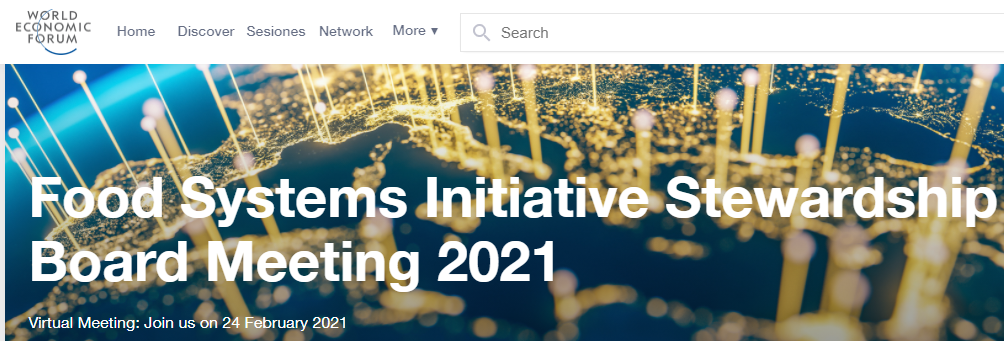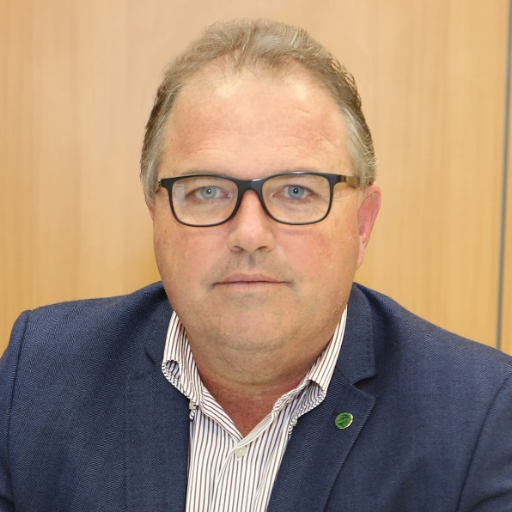Note of the editors: On behalf of the Brazilian Minister of Agriculture, the Agronomist Tereza Cristina, this presentation was delivered by Fernando Schwanke at the Special Meeting - Board of Stewards of the Food Systems Initiative – Virtual Meeting Wednesday 24 February 08:00-10:00-est/14:00 - 16:00-cet. The Special Meeting convened by the Board of Stewards focused on strengthening the country and regional agenda and leadership engagement in the lead up to the UN Food Systems Summit. This meeting emphasized the participation and priorities of country and regional leaders from Americas, Asia, Africa, and Europe.

Good Morning ladies and gentlemen! I thank you for the invitation to participate on this Special Meeting, on behalf of the Brazilian Minister of Agriculture, the Agronomist Tereza Cristina.
The Brazilian Ministry of Agriculture, Livestock and Supply is engaged in the discussions regarding the Food Systems Summit and we understand this as a very welcome initiative. At the same time, we are concerned with transparency and non-participative decisions that have been taken along the process that could create an undesirable situation.
We see that all countries have a lot to contribute with this agenda and we understand that we need to promote a broad view of food systems. We understand that there is no single game-changing solution nor is there a “one-size-fits-all food system”. Different realities, environments, histories, and societies should all be considered and respected.
As an example, the framework presented from the 5 Action Tracks has not been discussed or approved among our countries. It will be important to discuss it further, in a transparent and participative way, to understand whether this framework considers our different realities and societies and will delivery the transformations we need.
One important strategy is to agree on a common ground for our nation. We see the 2030 Agenda and the Sustainable Development Goals as the main framework for proposed initiatives.
Sustainable development depends on economic progress and trade is essential to this goal. Sustainable Food Systems depend on trade and should be incentivized by all countries involved. Care should be taken to avoid the use of concepts that lack multilaterally agreed definitions.
It will be important to bring science based discussions to the table to avoid prejudiced ideas or ideological concepts that will not lead us to a sustainable and social justice development.
Regarding this issue, one milestone that we believe is to promote innovation and technology as drivers to reduce all food systems impact at the scale needed. As an example, through innovation and policies like the Brazilian Low Carbon Emissions Agriculture Plan, Brazil has produced a Neutral and Low Carbon Meat protocol that demonstrates how cattle raised sustainably can help reduce emissions.
The direct linkage between meat production and environmental impact and the proposal to reduce this consumption should not be generalized. There are different food systems and different environmental impacts that should be considered.
The positive impacts of red meat consumption for food and nutritional security should also be considered. Evidence will be provided through the action track platform.
References to technologies as fertilizers and pesticides must consider their fundamental role in increasing productivity, which is vital to reduce pressure on native ecosystems and preserve biodiversity and also deliver food security.
Existing technologies such as biological inputs and others currently undergoing research can serve as potential complements or substitutes for chemical fertilizers.
In general, Brazil understands that there are important improvements to be made so that the Food Systems Summit represents the real challenges of all our nations to real improvements. We are engaged in this.
I take this opportunity to thank the technical partnership that our ministry has with the Inter-American Institute for Cooperation on Agriculture (IICA) and the Food and Agriculture Organization (FAO).
 Fernando Henrique Kohlmann Schwanke. Secretary of Family Agriculture and Cooperativism of the Ministry of Agriculture, Livestock and Supply
Fernando Henrique Kohlmann Schwanke. Secretary of Family Agriculture and Cooperativism of the Ministry of Agriculture, Livestock and Supply
Note: The opinions expressed in this article do not necessarily reflect the opinion of IICA.
|
If you have questions or suggestions for improving the BlogIICA, please write to the editors: Joaquín Arias and Viviana Palmieri. |
Add new comment